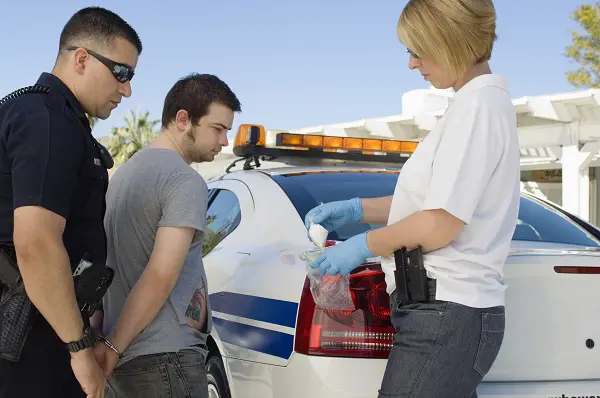
Like any other war, the war on drugs has claimed a fair number of innocent victims, among them people in Houston convicted when a false positive result was obtained using a defective field drug test kit.
Field drug test kits were designed to provide law enforcement with an easy to use, inexpensive (around $2 per kit) means to identify suspicious substances found on an individual or in an automobile. The problem is, these field drug test kits aren’t very reliable.
There have been several instances in which these tests give a false positive, identifying perfectly legal substances as illegal. Many people have been convicted in Houston and elsewhere for drug charges based on false positive.
A Jolly Rancher Can Get You Arrested on Methamphetamine Charges
The list of ordinary household items that drug test kits have identified as illegal substances would be funny if not for the lives they’ve ruined. Jolly Ranchers, kitty litter, food enzymes used in the cheese making process, and even Krispy Kreme donut glaze are substances that have been misidentified by field drug tests as methamphetamines.
Flour and Tylenol PM have both tested positive as cocaine and chocolate chips have led to arrests for both marijuana and LSD possession.
Just Say No to Field Drug Test Kits
The problem of convictions based on false positives was especially bad in Houston, even attracting national attention. A recent segment of “Full Frontal with Samantha Bee” entitled “Just Say No to Drug Test Kits” spotlighted Houston resident Ross Lebeau and ex-Houston resident Barry Demmings, both of whom were charged with drug possession based on a false positive result from a drug test kit.
Over the past several years, there have been hundreds of arrests and convictions in Houston based on positive readings obtained from a field drug test. When an officer would respond to a call or make a stop, they would test any substances found on a person or a suspect using a drug field test kit. If the test revealed the presence of a controlled substance, the suspect would be arrested and taken into custody. The substance would be collected as evidence and turned over to a crime laboratory for further analysis.
The laboratory often has a huge backlog of cases. Because of the length of time it would take to process the evidence, many individuals accepted plea bargains before the substances that led to their arrest were tested by the crime laboratory. In some instances, the inaccurate field drug test results were not discovered until after an individual’s sentence had been served.
Field Drug Tests No Longer Used
Since 2004, 298 people have been convicted of drug possession in Harris County, even though crime lab tests later found no controlled substances in the samples used as evidence against them. 131 have had their convictions overturned.
Once the problem with the false positives became known and the cases reviewed, the Harris County Public Defender’s Office began to locate and inform the individuals who had been convicted for an offense based on the incorrect field test.
As a result, evidence gathered using field drug test kits cannot be used at trial as evidence under Texas law. Both the Houston Police Department and the Harris County Sheriff’s Office have stopped conducting tests of evidence using drug field tests.
Houston Drug Defense Attorney Lisa Shapiro Strauss
If you or a loved one has been charged with drug possession in Houston, criminal defense attorney Lisa Shapiro Strauss is here to provide the aggressive, effective, criminal defense you need to make the best of a bad situation. As both a former prosecutor and an experienced Houston drug crimes lawyer, Lisa Shapiro Strauss has the knowledge and insight that enables her to anticipate how the state will approach your case and evaluate your situation from every angle to determine the best course of action in your situation.
Lisa Shapiro Strauss represents clients in Houston and surrounding areas. Call (713) 449-9922 to schedule a free consultation to discuss your case. Our legal team is dedicated to helping our clients avoid the kind of felony convictions that can affect educational goals, careers, families and futures.




